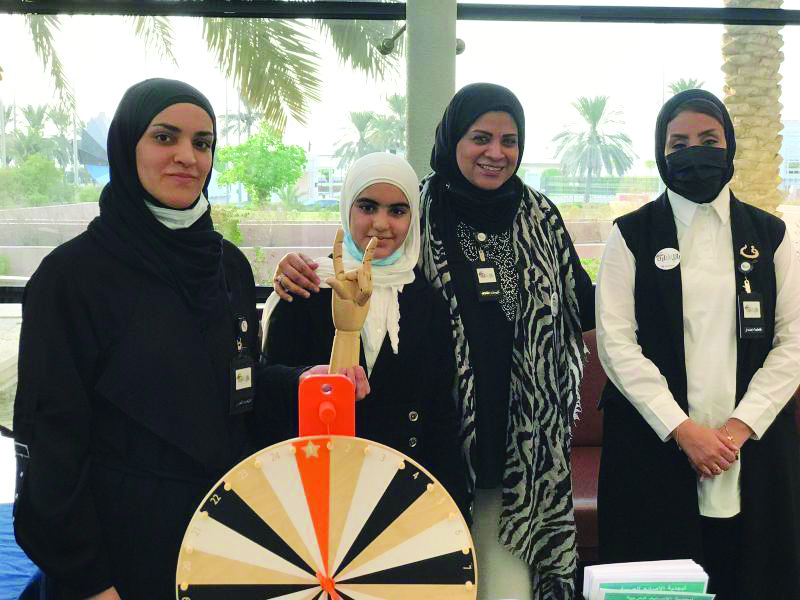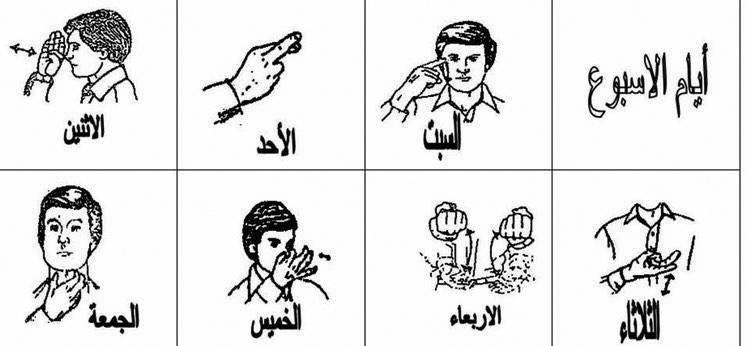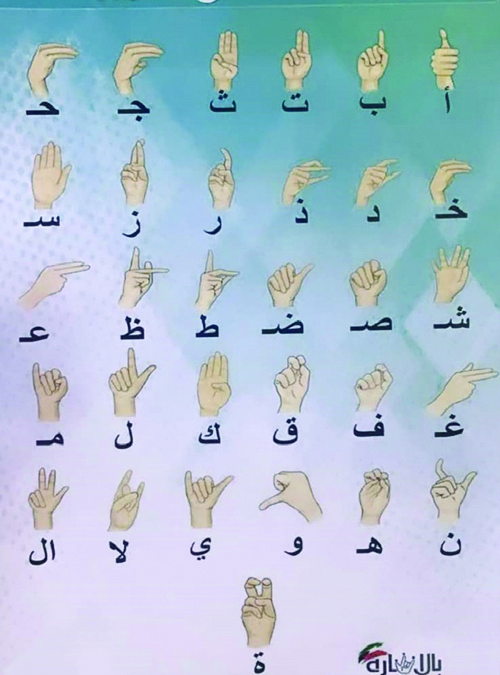 The Deaf Friends team - KUNA photos
The Deaf Friends team - KUNA photosSign language is a full-fledged means of communication for deaf people, depending on facial and body gestures that enable them to interact. The UN General Assembly set Sept 23 as the International Day for Sign Languages to highlight their importance, and how it was a major right for deaf people to have their own languages. The international day coincides with the establishment of the World Federation of the Deaf, founded in 1951.
"Sign language is multicultural and derived from the culture of every country," said Hamad Al-Marri, President of Kuwait Sport Club for the Deaf. Marri, also member of the higher council for the disabled, told KUNA deaf people will be using their hands and other body gestures to express themselves. Every country has a unique sign language depending on its culture, he explained. "There is an international sign language, an Arab sign language and a unique local sign language."
 Arabic days of the week in sign language
Arabic days of the week in sign languageMarri said many deaf people have occupied senior positions because they excelled in the use of sign language. He added he proposed to the Civil Service Commission for the appointment of people with sign language expertise in government departments to help the deaf. Marri said HH the Crown Prince Sheikh Mishal Al-Ahmad Al-Jaber Al-Sabah instructed Kuwait National Guards personnel, when he was deputy chief of KNG, to learn sign language to communicate with the deaf.
 Arabic alphabets in sign language
Arabic alphabets in sign languageDr Mohammad Al-Ramzi, a sign language instructor, said sign language "is rich, expressive and complicated just like the spoken language, and it has a grammar framework similar to all human languages". Speaking to KUNA, Ramzi said Arab countries unified their sign languages in 1999 and a dictionary was published with more than 3,000 signs. Kuwait was the first country in the world to interpret three TV news bulletins. The bulletins were raised to eight per day in 2020, he added.
Ismail Karam, Technical Director at Kuwait Sport Club for the Deaf, said he learned sign language at Al-Amal (Hope) School for people with special needs, which he joined in 1960. After spending 12 years at the school, Karam graduated with the ability to write and sign. He then worked at the finance ministry's printing press where he spent 30 years, during which he joined former classmates to establish the Kuwait Society for Deaf and Dumb in 1975. The society later changed its name to Kuwait Sport Club for the Deaf.
Al-Zahraa Al-Tamimi, member of the Deaf Friends team, said team members are teaching hearing-impaired people how to use sign language. The team, she told KUNA, sought to spread the use of sign language on social media, TV channels and public places. Kuwait is the second Arab country to introduce education of the deaf - the ministry of education issued a law in 1965 making it mandatory for people with special needs to get an education. - KUNA










